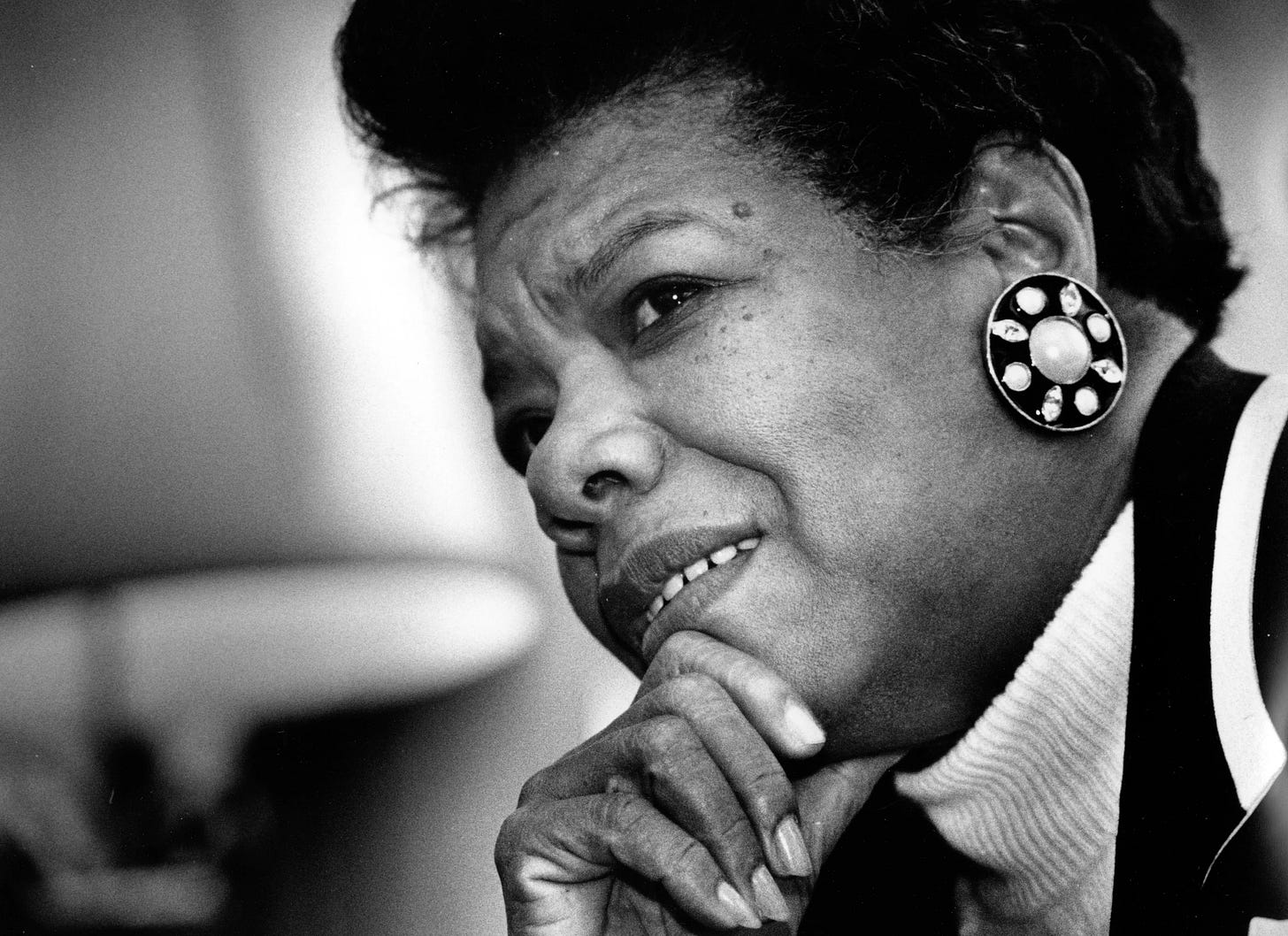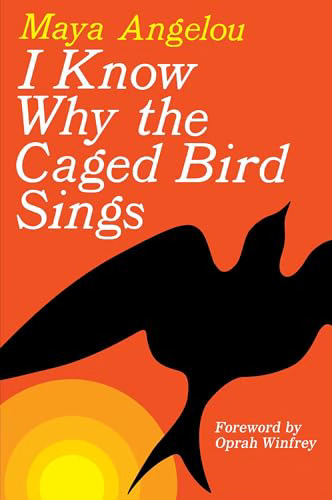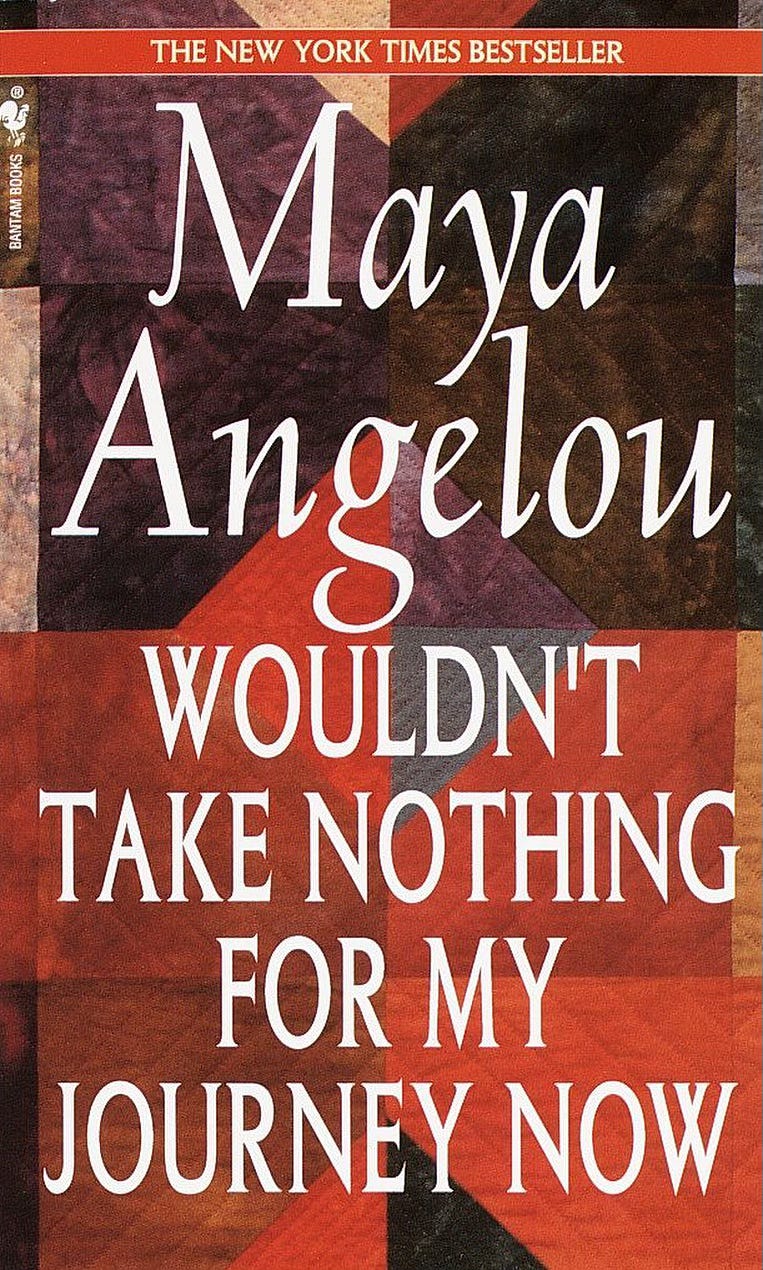The reason that I started The BW Printing Press Bookshop is to share the stories that have made an unforgettable impact on my life—dare I say, engrained words on my heart and formed my life philosophy.
And there are two quotes from Maya Angelou’s books I Know Why the Caged Bird Sings and Wouldn’t Take Nothing For My Journey Now that have done just that… they have formed my life philosophy.
BIOGRAPHY
Poet, dancer, singer, activist, scholar, and author, Maya Angelou was born on April 4, 1928, in St. Louis, Missouri as Marguerite Ann Johnson. Her childhood was not an easy childhood. Due to her parent’s volatile marriage and their later divorce, Angelou lived with her paternal grandmother in Stamps, Arkansas at an early age.
At the age of seven, Angelou went back into her mother’s care for a brief time. It was during this time that Angelou was raped by her mother’s boyfriend. Her mother’s boyfriend was jailed for and later released; however, upon his release from jail he was killed. Angelou believed that it was her testimony that led to his death, so she became mute for six years. Angelou’s mutism lasted through her teen years while she again lived with her grandmother in Arkansas.
Despite the challenges of her early years, Angelou developed a deep interest in written word which was evident from an early age. Upon her return to Arkansas during her teen years, Angelou took an interest in poetry and memorized works by both Shakespeare and Poe.
Angelou later graduated from Mission High School in the summer of 1944 and soon after gave birth to her only child, Clyde Bailey (Guy) Johnson. In 1949, Angelou married Tosh Angelos, an US Navy electrician; however, their marriage ended in divorce in 1952. Although the marriage did not last, their connection remained through her name as Maya adopted a form his surname which she kept throughout her life.
Some of Angelou’s most famous poems include “Phenomenal Woman,” “Still I Rise,” and “On the Pulse of Morning” (recited by Angelou during President Bill Clinton’s 1993 inauguration).
In 1969, Angelou published her book I Know Why the Caged Bird Sings which went to become the first nonfiction bestseller by a Black woman.
I KNOW WHY THE CAGED BIRD SINGS
When I first read Angelou’s book I Know Why the Caged Bird Sings, I was in sixth grade. And I, for the life, cannot explain why “The caged bird sings with a fearful trill, of things unknown, but longed for still, and his tune is heard on the distant hill, for the caged bird sings of freedom” was something so poignant to my sixth-grade self, but this quote has lived on in my head ever since—not a day has passed when I haven’t thought about this quote.
But the thing that I find most interesting about my time reading I Know Why the Caged Bird sings, is that it has built some strong mental imagery in my head. This imagery is so strong that to this day when I think about this quote, I’m literally transported back to sixth grade—I feel and smell the things that I felt every morning as I stepped off the school bus and walked down the hall to take this book out of backpack and start reading.
Now, here I am thirteen years later and I’m still trying to figure the deep soul connection that I hold with Angelou’s book I Know Why the Caged Bird Sings.
Well, that was until now…
As I’m writing this article, I’ve finally found the connection between this book and me—I finally understand why this specific quote has been so poignant to my life. Unbeknownst to me, my sixth grade soul was acting as Virgil and guiding me to a revelation that I just now come to notice at 25 years old.
You see, although sixth grade me didn’t realize it, I was in a cage—the illusion of calling.
But now that I think about, I kind of did know that I was in a cage—I just didn’t know it was cage language—because for years I’ve always said that I didn’t want to be a pastor, but I was called to be a pastor from the age of five.
And the reason why I connected so deeply with I Know Why the Caged Bird Sings is because my, even then, my soul knew that the pastoral work that I was called to was deeper than the pulpit.
And although even in sixth grade I knew I was called to being a pastor but didn’t want to be a pastor, it wasn’t until high school that I began to feel unsafe in my calling and started to wrestle with what my actual calling was. And despite this wrestling, I still went to college in pursuit of becoming a pastor; however, by the time I had the courage to admit that I probably got my calling wrong, I was already a sophomore in college and thought I was too far into my educational journey to make a switch without starting back at zero.
It may have taken thirteen years, and the epiphany may have happened unexpectedly, but I have finally figured out the soul connection that I hold to this book, and to that end, I would like to adapt the quote a little bit… The called kid sings with a fearful trill, of things unknown, but longed for still, and his tune is heard on the distant hill, for the called kid sings of authenticity, belonging, and freedom.
The called kid sings with a fearful trill, of things unknown, but longed for still, and his tune is heard on the distant hill, for the called kid sings of authenticity, belonging, and freedom.
WOULDN’T TAKE NOTHING FOR MY JOURNEY NOW
The second quote Angelou that has shaped my morals and thinking is from her book Wouldn’t Take Nothing For My Journey Now.
‘I looked up the road I was going and back the way I come, and since I wasn’t satisfied, I decided to step off the road and cut me a new path.’
…
Each of us has the right and the responsibility to assess the roads which lie ahead, and those over which we have traveled, and if the future road looms ominous or unpromising, and the roads back uninviting, then we need to gather our resolve and, carrying only the necessary baggage, step off that road into another direction. If the new choice is also unpalatable, without embarrassment, we must be ready to change that as well.
I think that the reason that I love this quote so much is the same reason why I love the Enneagram… it speaks to the power that we each hold within ourselves to be dynamic beings and to not be defined by our past, but to write the story for the ending that we want.
You know… with all things considered, it’s kind of funny how unaware yet aware my middle school self was. I think that had my middle school self truly understood the fundamental truth of these two quotes, especially the caged bird quote, I would be in a similar but different station of life right now. Maybe, just maybe, had I truly understood their fundamental truths, I would have been awakened to my true pastoral work much earlier in life and I wouldn’t have developed a slight disdain for the work of ministry. To that end, I want to challenge you to grab a copy of I Know Why the Caged Bird Sings and Wouldn’t Take Nothing For My Journey Now to reflect on where you might have been if you would have discovered the fundamentals truths of these books sooner.





